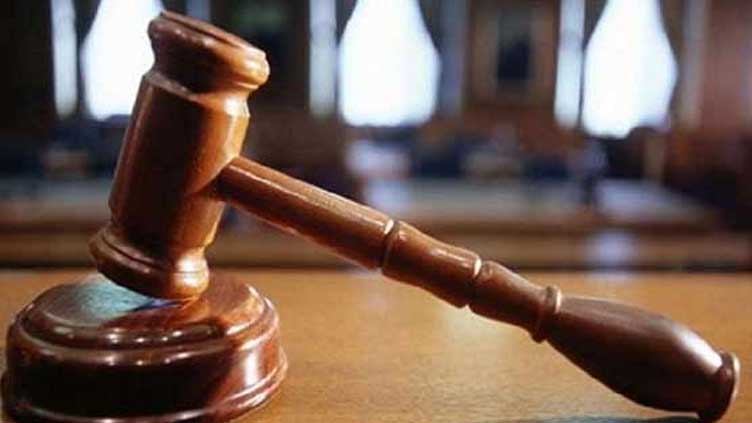The right to a fair trial is a primary pillar of any democratic society. It acts like a cornerstone of justice, equality and due process, ensuring that individuals accused of a crime are granted the opportunity to defend themselves and receive a fair judgement. Like any sacred rule of law, the Constitution of Islamic Republic of Pakistan duly provides its citizens such guarantees to ensure the development of welfare, democratic society in the country.
The addition of Article 10-A through the 18th amendment secured a landmark achievement for human rights and dignity in the country. To highlight right of fair trial we should focus on three basic articles given in the 1973 Constitution, i.e., Article 4, Article 10 and Article 10-A.
Article 4 of the Constitution of Pakistan emphasises the inviolability of the dignity of individuals, stating that “Every individual shall be entitled to the protection of the law for the inviolability of his dignity and person.” This provision establishes the fundamental principle that every person, regardless of their status or circumstances, is entitled to be treated with respect and dignity during all stages of the trial process.
Article 10 of the Constitution of Pakistan provides several safeguards to protect individuals’ rights during arrest and detention, which are essential components of a fair trial. It states that every person who is arrested must be informed of the grounds for arrest, must be presented before a magistrate within 24 hours and shall not be detained for more than 24 hours without the expressed authority of a magistrate.
These safeguards aim to prevent arbitrary arrest and detention, ensuring that individuals have an opportunity to challenge the legality of their arrest and seek appropriate legal remedies.
Article 10-A was added to the Constitution through the 18th Amendment in 2010. It depicts that “For the determination of his civil rights and obligations or in any criminal charge against him, every person shall be entitled to a fair trial and due process.” This provision underscores the significance of fair trials and due process in matters concerning the determination of an individual’s civil rights and obligations or in any criminal charges brought against them.
It highlights the necessity to provide individuals with adequate legal safeguards and procedural protections to ensure their rights are upheld.
The right to legal representation is a fundamental aspect of a fair trial and it is protected under Article 10-A of the Constitution. This provision ensures that every accused person has the right to be defended by a legal practitioner of their choice. Furthermore, if an accused person cannot afford legal representation, the state is obligated to provide legal aid and assistance to ensure equal access to justice.
A crucial element in ensuring fair trials is the independence of judiciary. The Constitution of Pakistan provides Article 175 to establish a separate and independent judiciary, free from any influence or interference, and guarantees the appointment of judges based on merit and competence. This provision safeguards the impartiality and integrity of the judiciary, allowing judges to administer justice without any bias or external pressure.
Central to the right of fair trial is the presumption of innocence. This principle dictates that an accused person is considered innocent until proven guilty. By shifting the burden of proof onto the prosecution, this principle acts as a safeguard against wrongful convictions and protects individuals from baseless accusations.
One significant example highlighting the value of fair trial and significance of the presumption of innocence in Pakistan is the case of Asia Bibi. Asia Bibi, a Christian woman from a rural village in Punjab, was accused of blasphemy, a highly sensitive and controversial offence in Pakistan. The case attracted widespread attention internationally, fuelled by religious and political tensions. Throughout the legal proceedings, the presumption of innocence played a crucial role in ensuring that Asia Bibi received a fair trial.
Despite facing immense public pressure and threats, the judiciary upheld the principle that Bibi was presumed innocent until proven guilty beyond a reasonable doubt. The burden of proof rested on the prosecution, requiring them to present substantial and credible evidence to support the blasphemy allegations against the accused. Her defence team vigorously challenged the accusations, highlighting inconsistencies in witness testimonies and procedural irregularities during the investigation and trial.
After years of legal battles, in 2018, the Supreme Court of Pakistan acquitted Asia Bibi, citing a lack of credible evidence and failure to establish her guilt. The Asia Bibi case serves as a powerful paradigm of Article 10-A. Despite the intense social and political pressures surrounding blasphemy allegations, the independent judiciary adhered to the principle of presumption of innocence which is a shield against wrongful convictions.
Article 10-A prioritises the protection of individuals’ rights and prevents the misuse and abuse of law. The significance of a fair and impartial judicial process always guarantees and cultivates a socio-welfare state.
Post Views: 108


 Sports3 months ago
Sports3 months ago
 Fashion2 months ago
Fashion2 months ago
 Sports3 months ago
Sports3 months ago
 pakistan3 months ago
pakistan3 months ago
 pakistan3 months ago
pakistan3 months ago
 World2 months ago
World2 months ago
 World2 months ago
World2 months ago
 Sports2 months ago
Sports2 months ago




















